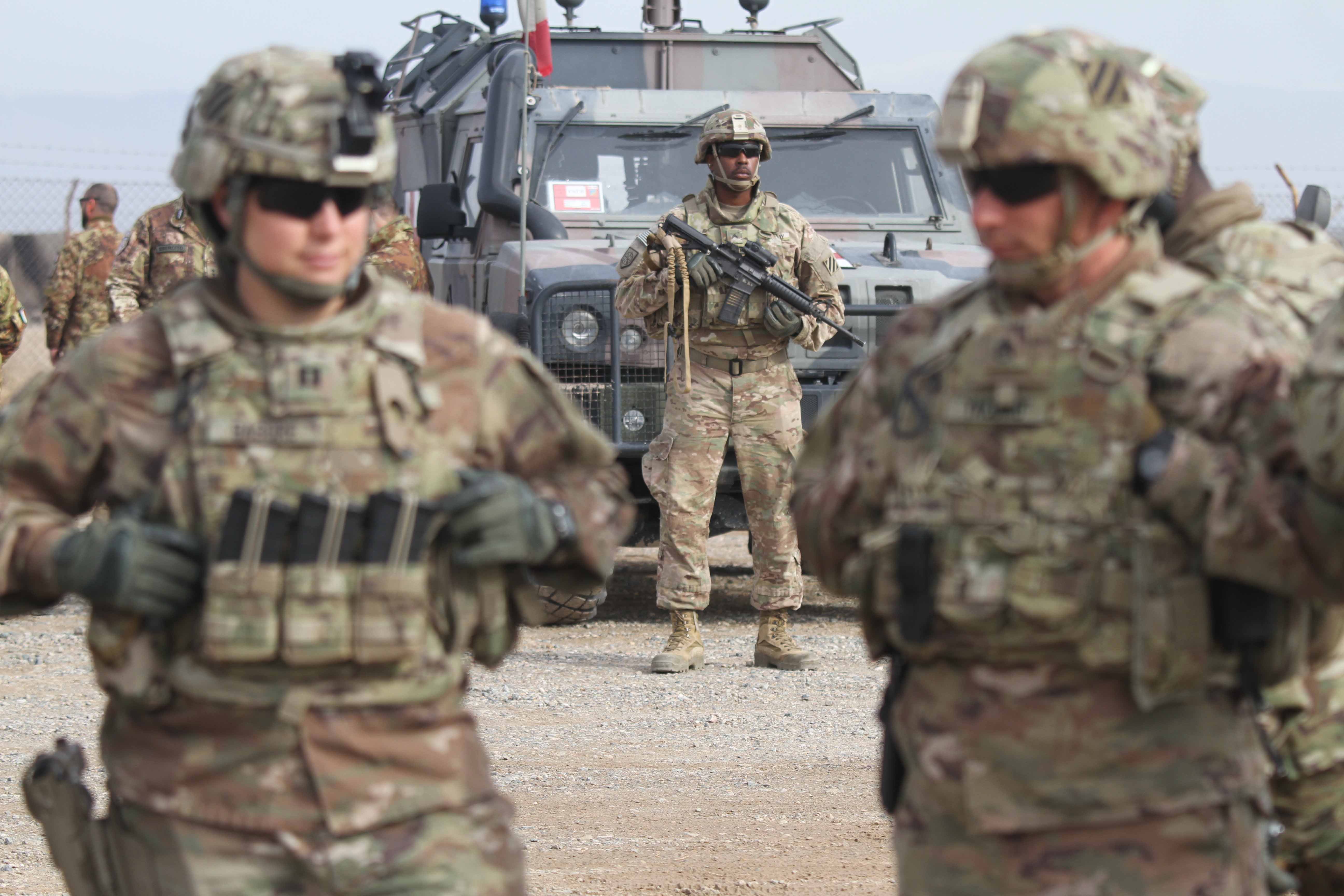My brother served in Afghanistan and Iraq. Biden’s pledge is a huge relief
The president will withdraw all American troops from Afghanistan by September 11th, 2021


Your support helps us to tell the story
From reproductive rights to climate change to Big Tech, The Independent is on the ground when the story is developing. Whether it's investigating the financials of Elon Musk's pro-Trump PAC or producing our latest documentary, 'The A Word', which shines a light on the American women fighting for reproductive rights, we know how important it is to parse out the facts from the messaging.
At such a critical moment in US history, we need reporters on the ground. Your donation allows us to keep sending journalists to speak to both sides of the story.
The Independent is trusted by Americans across the entire political spectrum. And unlike many other quality news outlets, we choose not to lock Americans out of our reporting and analysis with paywalls. We believe quality journalism should be available to everyone, paid for by those who can afford it.
Your support makes all the difference.It was a time of political tumult and paisley prints. My hair was shaggy and my politics radical. There was an unjust war on and a new civil rights movement afoot, and I was determined to protest one and fight for the other. As we marched in a unified circle, chanting antiwar slogans, “Fortunate Son” blared in the background.
This wasn’t the 1960s. It was 2003.
Today, the White House announced that President Biden will withdraw the last US troops from Afghanistan by September 11, 20 years after the terrorist attacks which began the longest war in American history. I was 15 that fateful day, and I knew that the events of that fall would define my generation.
I long ago lost my journal from that time, but I recall after 9/11, but before the first boots on the ground (remember that phrase?) landed in Afghanistan, writing that I thought invasion was a bad idea. Who exactly were we fighting? How do you wage war on an idea? These were questions I grappled with at 15. I never could have imagined we would still be grappling with them when I was 35.
My first protest came two years later. I was 17, openly gay, and on a school trip to Eastern Kentucky University. It was a few weeks before American forces — already stationed in Afghanistan for a year and a half — would invade Iraq. I could not serve because of Don’t Ask, Don’t Tell — but that was fine with me. The war was unjust, and I wanted no part in spilling blood for oil. So, I broke free of my school group and joined a student protest.
It was the first of many anti-war protests I would join over the next several years. For me, the 2000s would be defined by two political movements: the gay rights movement and the anti-war movement. I protested the war on college campuses, in town squares, in big ways and in small for the remainder of the decade. I listened, riveted and heartbroken, as Cindy Sheehan spoke of her son Casey’s senseless death in Iraq. I knew the name Pat Tillman and the sacrifice he made, giving up an NFL career to fight in Afghanistan, often wondering what it was all for. And, like so many Americans, I spent countless hours worried about a loved one — in my case, my brother — deployed overseas, first in Iraq and then later in Afghanistan.
Like a reboot ofThe Wonder Years, the War on Terror, of which the War in Afghanistan was the first and last front, defined my adolescence and young adulthood. I even wrote a short story about it, in which a gay teenager struggles with his boyfriend’s decision to enlist. It gave birth to new protests anthems — The Chicks’ Traveling Soldier, Pink’s Dear Mister President — and a decade of films like Syriana and Team America: World Police. It influenced our fashion (remember when camo cargo pants and dog tags were in style?), our TV (there was a show on Lifetime called Army Wives), and our politics (to this day, many on the left use the war in Iraq as a yardstick for a politician’s judgment).
But for hundreds of thousands of American troops, the war defined their lives in far more visceral and personal ways. Unlike Vietnam, there was no draft. No one was forced to fight against their will — well, no American, at least. But for those who did go, the experience will never leave them.
My brother does not talk much about his experiences overseas, and I do not ask. What little he has told me I will not repeat here, but it is horrific. I can tell the ghosts of Afghanistan still haunt him, as they haunt so many.
Towards the end of the 00s, as the war in Iraq became a quagmire (another phrase from the times) and our involvement there revealed to be predicated on lies, Afghanistan became “the forgotten war.” George Stephanopoulos would still read the names of those servicemembers killed in Afghanistan, but for the most part, the war receded from most Americans’ minds. It became like raising the debt ceiling, or filibusters: something that was a perennial part of our political landscape, but so ubiquitous that most of us only remembered it when there was a genuine emergency. That is to say, almost never.
Yet for so many of my peers, the war never leaves them. Some carry physical scars, many others emotional wounds that are still healing. They’re the lucky ones. At least 2,300 of their fellow servicemembers never made it home from Afghanistan.
There will no doubt be many today debating whether their sacrifice was worth it. What, they will ask, did we actually accomplish? These are fair questions, but I do not have the answers. Nor do I care to. Not today.
Instead, today I choose to celebrate the end of a terrible era, one that scarred my generation and robbed so many of my peers of life and limb. I choose to celebrate the homecoming of those remaining troops who will by the grace of God be reunited with their loved ones in short time. I choose to offer a prayer of thanksgiving for the end of America’s longest war — and a prayer of remembrance for my fellow millennials who did not live to see its conclusion.
Join our commenting forum
Join thought-provoking conversations, follow other Independent readers and see their replies
Comments